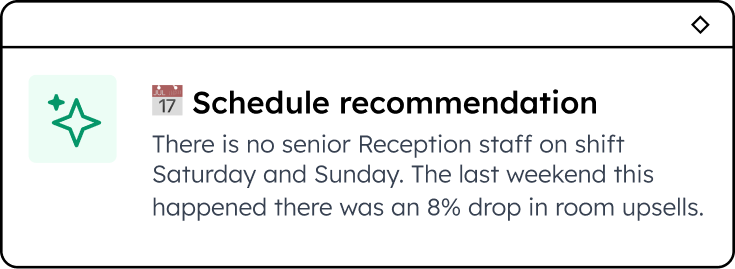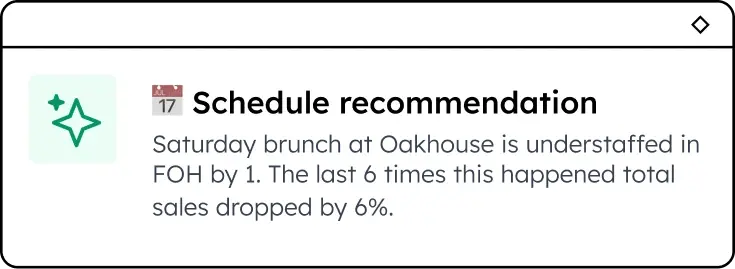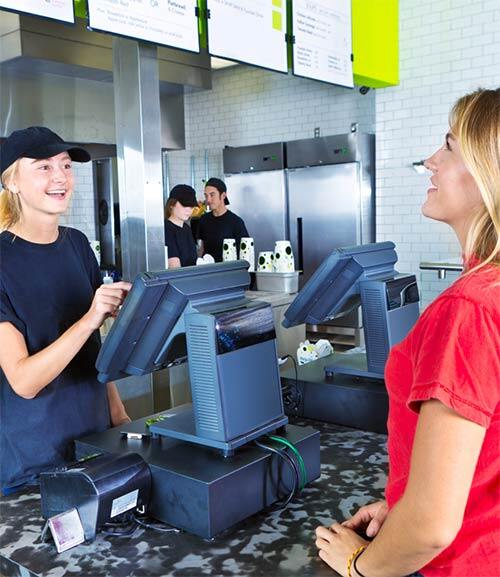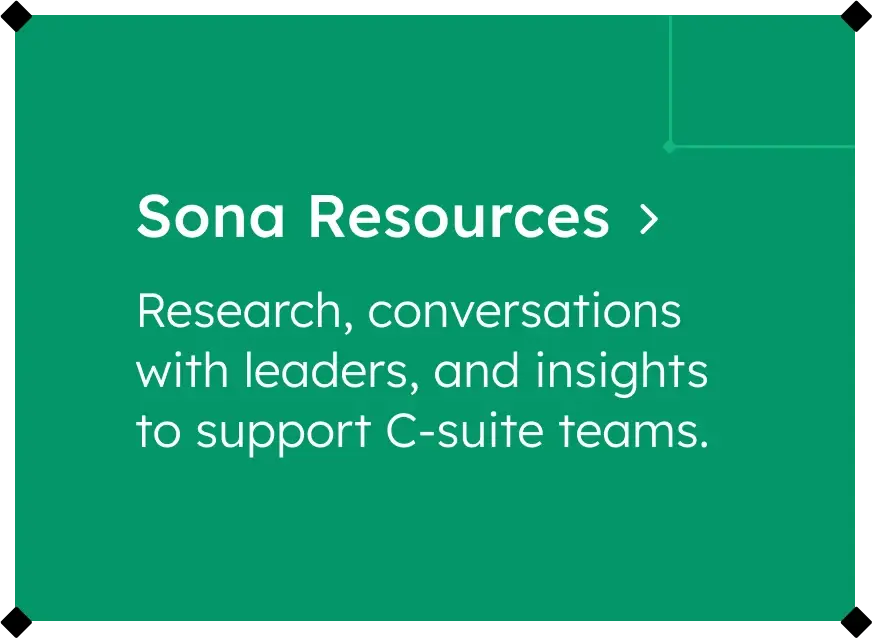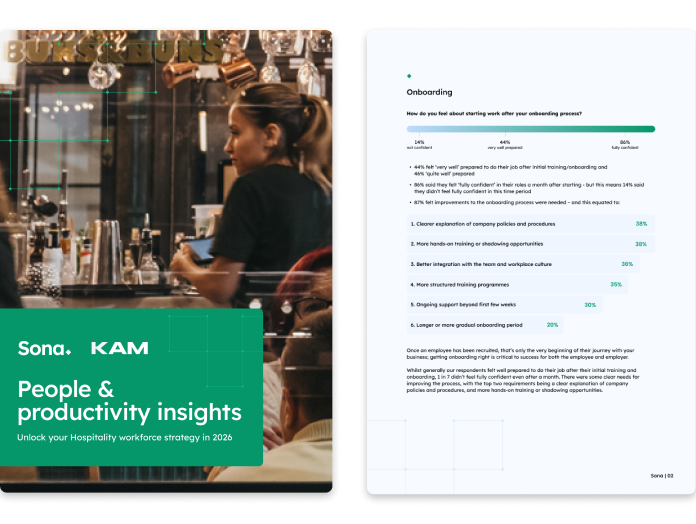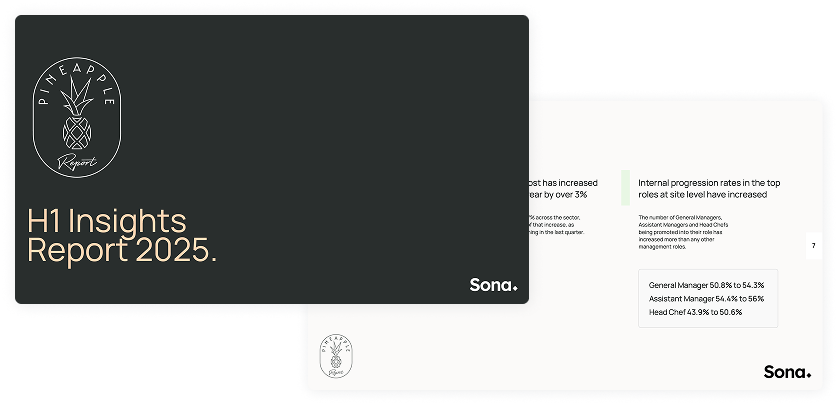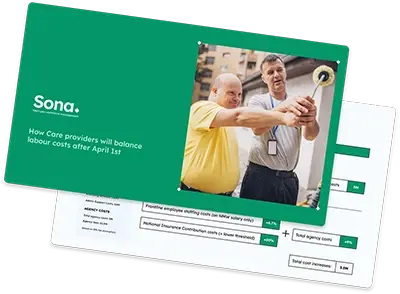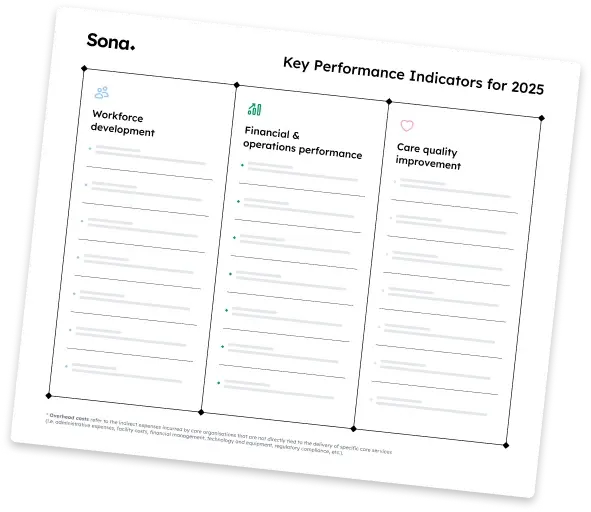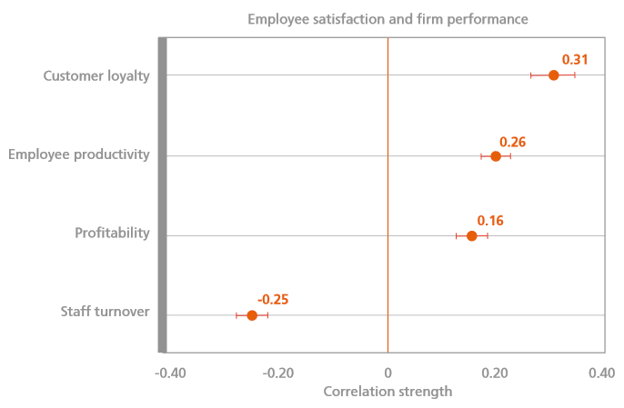How well-being check-ins can transform the way you retain staff
Work-life imbalance, burnout, extreme work pressure… frontline employees have been through a lot in the last few years. Give them the support they need and boost staff retention with wellbeing check-ins (and save money along the way).
3 minute read
How well-being impacts staff retention and productivity?
With two years of the COVID-19 pandemic and now a looming global recession, focusing on your staff's mental, physical, social, and financial well-being has never been more important.
Employee well-being initiatives as part of your company culture are a strong productivity magnet and retention booster.
Data from an LSE research paper highlights how employee well-being (gauged as employee satisfaction) impacts your company's four critical indicators:
- Staff turnover
- Profitability
- Employee productivity
- Customer loyalty
Source: LSE
These results explain why ,as a team leader aiming to attract and retain high-end talent, you should prioritise employee well-being, and take all the necessary steps to foster a thriving work culture.
One of the easiest, most-effective ways to do this is through weekly check-ins.
How can you increase staff well-being with weekly check-ins?
Regular, contextual, and comprehensive check-ins are not just important in driving a collaborative atmosphere but they’re also a powerful tool for boosting job satisfaction and positively impacting your staff's well-being.
Weekly 1:1 meetings foster a constructive employee-manager relationship while keeping productivity on track.
Frequent check-ins also provide employees with a safe environment to reach out to managers and communicate any concerns or feedback they have
Learn how care organisations can embrace flexible working and thrive.
This is how you can implement check-ins to improve retention
Okay, now we know check-ins are essential. But how do they work?
Rolling out regular check-ins need planning. Start by finding a central tool for feedback, goal-tracking, and performance reviews.
Next, decide on the frequency of the check-ins–we recommend weekly–and confirm the duration of check-ins–15-30 minutes.
Relevant and thoughtful questions are at the heart of valuable check-ins. Here are our favourites:
- What's the biggest accomplishment/challenge you faced this week?
- What can we do to improve as a company?
- How can I (the manager) be a better resource to you (direct reports)?
Open-ended questions encourage employees to elaborate, and can help drive meaningful conversations. Genuine conversations will help build a personal connection, demonstrating a genuine concern for employee well-being.
The employee's ability to respond to these key questions will also help managers address problems at the core and support their staff's mental well-being.
If you want to learn how to rethink retention based on a 720 UK-based employees survey, you can check out our guide: Rethinking Retention 2022
Check-in on your staff's well-being and see them happily stay
A Gallup survey found that managers directly influence over 75% of turnover factors. However, without the right tools or data, how can managers spot and fix the problems on the horizon?
That's why weekly check-ins can empower the manager with this information. Sona cares about workforce management–and well-being. That’s why you can check up on your employees and arrange weekly check-ins all from the same app.
Sounds good? Join our product showcase!
Discover how Sona's award-winning super app for the frontline team can help you open a channel of conversation that’ll strengthen your work culture and improve employee engagement, retention and well-being.
Enjoyed this article? Let's stay in touch 👋
If you liked this article, why not subscribe to our newsletter to get the latest news and views delivered straight to your inbox?

